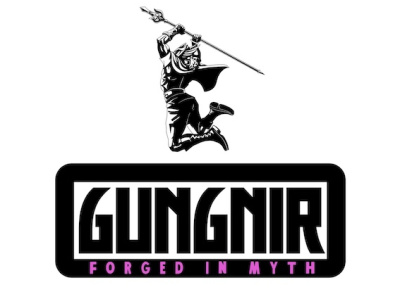There’s an old saying that you should never pick fights with people who buy ink by the barrel. Because of that, chances are that you’ve already seen it reported on comic news sites that the Eisner Awards, the industry’s most prestigious honor, has decided to do away with the category of "Best Comics-Related Publication or Journalism" and roll everything into a "Best Comic-Related Book or Periodical" award.
While I’m typically on the side of anything that promises to shorten and simplify the awards process, this one feels ill-conceived, unnecessary and ill-timed. And yes, I’ll cop to some special pleading here: last year, I was among the nominees in the now-defunct category, won by the late, lamented PanelXPanel magazine, edited by Hassan Otsmane-Elhaou and Tiffany Babb. It was a huge honor to have my work and the publications in which it appeared (Forbes, Publishers Weekly, and of course ICv2) recognized by the judges and the industry, and it’s hard to see where we fit in the new schema, matched up against a fundamentally different kind of content, with a different audience and different purposes.
But it’s not just about the organizations and people getting slighted. At a time when comics needs more media attention, more outlets doing better coverage, and more support for the publications that have survived a brutal economic era for journalism of all kinds, this is exactly the wrong message to send.
There’s a difference between reporting on comics and writing books about comics. First, let’s dispense with the explanation that the category has not been abolished, just consolidated.
Covering comics on an ongoing basis is as fundamentally different from writing books (or contributing to long-form publications) about comics as doing a daily strip is from creating a graphic novel. Publications and the journalists who write for them have to make sense of industry news, keep people’s attention on a daily basis, maintain editorial standards and a consistent voice across different contributors, and so many other things that authors don’t.
So it’s peculiar that the Eisner Awards, which insists on important distinctions between "webcomics" and "digital comics" and between single issues, miniseries, and continuing series, has decided that in this case, all that stuff you people who write about comics do is basically the same. In effect, those of us who write about comics on a daily or weekly basis are competing against publications that have long lead times, or authors who have spent years writing a biography of Stan Lee, a history of underground comix, or a monograph on African-American creators of the 1940s and 50s – something that does not fairly honor the work of either side of that equation.
Perhaps this decision would be easier to understand if it were part of an overall consolidation of sprawling categories that have lost their meaning over time, but that does not appear to be the case.
The Eisners should recognize media that helps our industry. Journalists can get a bad rap sometimes, but those of us writing about comics tend to have genuine affection for the medium and for a lot of the people in it. And, increasingly, doing this work is a labor of love. In the words of the great comics journalist Heidi MacDonald, the best way to make a small fortune writing about comics is to start with a large fortune.
Consider the series that ran here on ICv2 all year in 2023, looking back at 50 years of the Direct Market (see "Direct Market 50th Anniversary"). That’s not a subject that would get a lot of attention just about anywhere else, but I think everyone who knows anything about comics understands why it is important to document and recognize. Work like this contributes just as much – perhaps more! – to the medium than a well-inked issue of your favorite superhero series that remains eligible for awards in six different categories.
Look elsewhere at the shrinking universe of comics publications, from longstanding operations like The Beat, to newcomers like Popverse, to rumor-mongering tabloids and gossipy YouTube channels. They all, in their own way, bring attention to the medium and the business in ways that, say, books about comics, don’t, because of their frequency, variety, scope and scale.
There is no reason why they were worth honoring at the Eisner Awards for the past 35 years, give or take, and are suddenly no longer worth their own category in 2024.
It will hurt publishers and creators seeking wider attention. Beyond the fact that comic-based publications are different from books about comics, journalists who write about comics outside of comic-based publications (including, but not limited to, yours truly) have historically had a hard time getting recognition, and this consolidation of categories does not make it any easier.
That’s a problem because comics have fought for and deserve decent coverage in the mainstream press. It helps sales, it helps credibility, and it helps the careers of creators trying to build personal brands and sustainable livelihoods. It certainly keeps a small army of publicists and PR folks in business, if my inbox is any indication.
One way to incentivize good press coverage in publications that don’t focus exclusively on comics and the industry is to recognize it. When I write stories on Forbes that focus on worthwhile graphic novels, or spotlight underrated creators, or break news about companies to readers who would not see it otherwise, or talk about topics like comics censorship, they don’t always get the kind of traffic that a pan of the latest MCU film or some other "mainstream" topic might. But getting nominated for an Eisner last year gave me a great way to win those arguments, because I could demonstrate to the editorial team at the site that this work was valued within the industry I cover. That matters.
The same is likely true with any of my remaining colleagues writing for national publications or websites who had not been recognized for their work because of the previous limitations in the category that had usually made it the exclusive preserve of nostalgia zines or dedicated publications like The Comics Journal. The job of writing about comics is not getting any easier or any more lucrative, even at large outlets, many of which are shedding jobs. The honors and benefits that come with the possibility of getting nominated for, or even winning, an award, help in small but meaningful ways.
It goes against the holistic spirit of the Eisner Awards. One of the great things about the Will Eisner Industry Awards is that they are named for Will Eisner, who distinguished himself not only as one of the creators of the fundamental visual language of comics and some of its most memorable characters, but also as an entrepreneur, a scholar of the artform, a teacher and mentor, an ambassador of the medium and an advocate for the business. The awards do not just honor the craft of comics, but all the various extensions, including special awards for retailers and humanitarians.
I find it hard to believe that Eisner himself, whose work was printed in newspapers, would have wanted journalism appended as an afterthought to an unrelated category rather than as the distinct part of the industry that it is.
It’s not a done deal. According to Eisner Awards administrator Jackie Estrada, judges have the latitude to adjust the categories and criteria as they see fit – as does the administrator herself, and presumably Comic-Con and the Eisner Estate.
If you are a publisher, a creator, or a publicist who believes that periodical journalism about comics is important enough to be recognized by the industry’s most prestigious and visible awards, please make your voice heard. With all that is going on in the world of journalism these days, it is a crappy enough time to be trying to write professionally about anything. It would be great for comic publications and comic journalists to still harbor the hope of recognition for our efforts.
The opinions expressed in this column are solely those of the writer, and do not necessarily reflect the views of the editorial staff of ICv2.com.
Rob Salkowitz (@robsalk) is the author of Comic-Con and the Business of Pop Culture and an Eisner Award nominee.

Column by Rob Salkowitz
Posted by Rob Salkowitz on January 12, 2024 @ 3:39 am CT
MORE COMICS
Publisher Founded by Former Heavy Metal CEO to Expand with Three Imprints
August 15, 2025
The publisher, founded by former Heavy Metal CEO Michael Medney, will expand with three new imprints.
Madison, Wisconsin on August 10, 2025
August 15, 2025
We visited the large Barnes & Noble store in Madison, Wisconsin on a Sunday afternoon, and found manga and merch displays expanded.
MORE COLUMNS
Column by Scott Thorne
August 11, 2025
This week, columnist Scott Thorne notes a new twist in the Diamond Comic Distributors saga and shares his thoughts on the Gen Con releases that will make the biggest impacts.
Column by Jeffrey Dohm-Sanchez
August 7, 2025
ICv2 Managing Editor Jeffrey Dohm-Sanchez lays out the hotness of Gen Con 2025.









